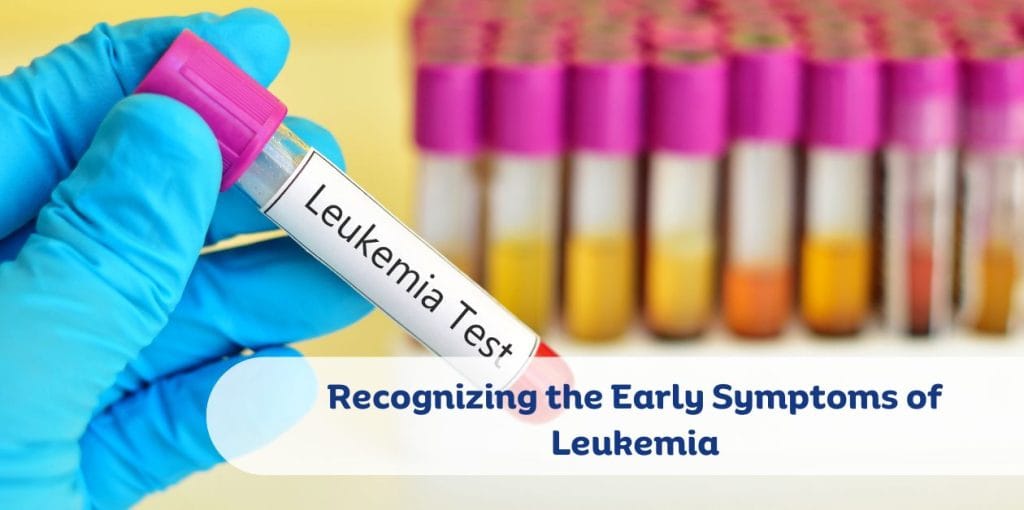Recognizing the Early Symptoms of Leukemia

Leukemia is a blood cancer that originates in the bone marrow and affects the blood and immune system. As one of the most common forms of cancer affecting both adults and children, it is crucial to recognize the early symptoms of leukemia for timely intervention and effective treatment. At Pi Health Cancer Hospital, pioneering clinical trials are pushing the boundaries of leukemia research, offering patients access to the latest advancements in cancer treatment.
What is Leukemia?
Leukemia is a type of cancer that affects the blood and bone marrow, where blood cells are produced. It causes the body to produce abnormal white blood cells that can’t function properly. These abnormal cells can crowd out healthy blood cells, leading to issues such as infections, bleeding, and anemia. The condition can manifest in several forms, with the most common types being acute lymphoblastic leukemia (ALL), acute myeloid leukemia (AML), chronic lymphocytic leukemia (CLL), and chronic myelogenous leukemia (CML).
Early Symptoms of Leukemia
Recognizing the early signs of leukemia can be challenging because they often resemble those of other less serious illnesses. However, identifying these symptoms early can significantly improve treatment outcomes. Some common leukemia symptoms to watch for include:
- Fatigue and Weakness
Feeling unusually tired or weak, even after rest, is one of the most common leukemia symptoms. This occurs due to a decrease in healthy red blood cells, leading to anemia.
- Frequent Infections
Leukemia compromises the immune system, making individuals more vulnerable to infections. If you or a loved one notice persistent or recurrent infections, it could be a sign that leukemia is affecting the production of healthy white blood cells.
- Unexplained Bruising or Bleeding
Easy bruising, frequent nosebleeds, or unusual bleeding from the gums are warning signs of leukemia. This is caused by the abnormal production of blood cells that affects clotting.
- Pain or Fullness in the Abdomen
Leukemia can cause the spleen or liver to enlarge, leading to abdominal pain or a sensation of fullness. In some cases, this can also affect digestion.
- Pale or Blotchy Skin
Paleness is another sign of leukemia, due to a decrease in red blood cells. Some individuals may also experience a blotchy appearance or a yellowish tint to their skin.
- Fever or Unexplained Weight Loss
Fever, which occurs without any infection, or sudden and unexplained weight loss, can also be indicative of leukemia. These symptoms are a result of the body’s response to the abnormal growth of blood cells.
- Swollen Lymph Nodes
Swelling of the lymph nodes, typically found in the neck, armpit, or groin, can occur when leukemia cells spread to these areas. This is another potential symptom of leukemia.
Why Early Diagnosis is Crucial
Early detection of leukemia is crucial for improving survival rates. By recognizing the signs and seeking prompt medical attention, patients can begin treatment at the earliest possible stage. Early treatment can prevent the progression of the disease and improve the overall prognosis. Moreover, breakthroughs in cancer treatment are enabling patients to access new therapies that can be more effective in the early stages of the disease.
Cancer Treatment: What You Need to Know
Cancer treatment has evolved dramatically over the years. In the case of leukemia, the treatment options depend on the type and stage of the disease. Some of the most common treatments include:
- Chemotherapy: The most common treatment for leukemia, involving drugs that kill cancer cells or stop their growth.
- Radiation Therapy: Uses high-energy rays to target and kill leukemia cells.
- Bone Marrow or Stem Cell Transplant: This procedure replaces damaged bone marrow with healthy stem cells, allowing the body to produce normal blood cells.
- Targeted Therapy: Drugs that specifically target the cancerous cells, minimizing damage to normal cells.
- Immunotherapy: A promising treatment that boosts the body’s immune system to fight leukemia.
Conclusion
Recognizing the early symptoms of leukemia and seeking prompt treatment is crucial for improving survival rates and quality of life. At Pi Health Cancer Hospital, the groundbreaking work being done in clinical trials is offering new hope to those battling blood cancers. condition.
For more information on leukemia symptoms, treatment options, and clinical trials, visit Pi Health Cancer Hospital.
By staying informed and aware of the symptoms, we can take important steps toward early diagnosis and effective treatment.
FAQS
Leukemia is caused by mutations in the DNA of bone marrow cells. While the exact cause is not always clear, certain factors such as genetics, exposure to radiation, and certain chemicals can increase the risk of developing leukemia. pain, and jaundice.
cancer and other related cancers.
Leukemia is diagnosed through blood tests, bone marrow biopsies, and imaging tests. Early detection is vital for effective treatment.
While leukemia cannot be prevented, leading a healthy lifestyle, avoiding harmful chemicals, and reducing exposure to radiation can help lower the risk.
The survival rate for leukemia depends on the type and stage of the disease. With early detection and advancements in treatment, survival rates have significantly improved.
The duration of leukemia treatment depends on the type and stage of the disease. Some treatments can last several months, while others may be lifelong.
Some of the most promising advancements in leukemia treatment include targeted therapy, immunotherapy, and stem cell transplants, which offer more precise and effective treatment options.
To participate in a clinical trial at Pi Health Cancer Hospital, consult with your oncologist or contact the hospital for more information on ongoing trials and eligibility.

Dr. A. Venugopal
Clinical Director & HOD Medical Oncology Senior Consultant Medical Oncologist & Hemato-Oncologist
About Author
Dr. A. Venugopal
MD (General Medicine), DM (Medical Oncology), MRCP – SCE Medical Oncology (UK), ECMO (Switzerland).
Dr A. Venugopal is One of the best medical oncologist and Hemato Oncologist in hyderabad, currently serving as the Head of the Department and Senior Medical Oncologist, Hemato Oncologist at Pi Health Cancer Hospital in Gachibowli, Hyderabad. He brings over 15 years of extensive experience in the field of Oncology.
